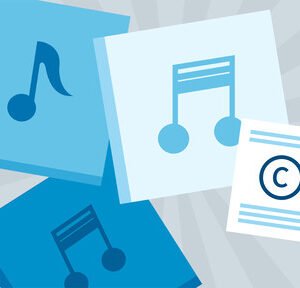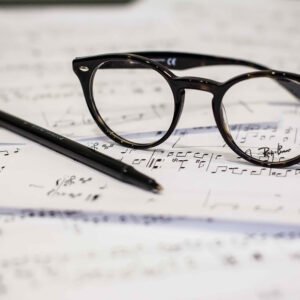In 2022, a new version of the Nigerian Copyright Act was passed, bringing significant changes that directly impact musicians. In this article, we will explore how the Nigerian Copyright Act 2022 relates to musicians and empowers them in various ways.
The Nigerian music industry is undeniably one of the most vibrant and influential on the African continent. Musicians in Nigeria have contributed significantly to the country's cultural identity and global recognition. To protect the rights and interests of these artists, the Nigerian government has continuously updated its copyright laws.
Copyright is a form of intellectual property right and is the exclusive right given to the creator of a copyrightable work to control the use of their work. Any unauthorized use of work made by a person who is not the creator is considered an infringement of the copyright.
The Call for Reform
The need for a comprehensive overhaul of existing copyright laws was evident. Stakeholders, including artists and musicians, clamored for changes to foster innovation, creativity, and the growth of Nigeria's creative industries. Additionally, the rights of copyright owners needed more robust protection.
A Collaborative Review Process
Responding to these demands, the Nigerian Copyright Commission (NCC), the regulatory body overseeing copyright in Nigeria, initiated a stakeholder review process to modernize copyright laws. The resultant bill underwent a rigorous legislative journey. Finally, on March 17, 2023, President Muhammadu Buhari signed the Copyright Act, 2022, into law.
The Act's International Alignment
The new Act aligns Nigerian copyright law with international treaties and conventions, positioning Nigeria as a key player in the global copyright landscape. It introduces several innovative provisions, fortifying copyright protection in a technologically evolving world.
Key Provisions of the New Nigerian Copyright Act 2022
The Nigerian Copyright Act of 2022 introduced several key provisions that have a significant impact on musicians and the broader creative community.
Here are some of the most notable provisions of the new act:
1. The Record Producer is now the owner of the copyright in a music recording
The new Act has done away with distinguishing the author of a sound recording of a musical work from a regular sound recording. It identifies recorded music as a sound recording and provides that the person who arranges for the sound recording to be made. i.e., the producer is an author and initial owner of a sound recording subject to contract.
Under the old law, the initial owner of sound recordings of musical works was the recording artiste i.e. performer, subject to any contract.
2. Introduction of digital rights for the Copyright owner
The new Act in addition to reiterating all exclusive rights under the control of the copyright holder now includes the exclusive right to do and authorize the making of the work available to the public by wire or wireless means in such a way that members of the public are able to access the work from a place and a time independently chosen by them.
This provision recognizes the importance of digital platforms and increased online access to copyrighted content. It aims to give copyright holders control over the distribution of their works in the digital realm and addresses issues related to online piracy and unauthorized streaming.
Where there is evidence of piracy, copyright owners can now exercise their digital rights to prevent such through take-down notices. Hence, only copyright owners have the right to put their works on digital platforms such as YouTube etc. unless they authorize other persons to act on their behalf.
3. Performing Artists and Record Labels are expressly entitled to payment for their music
The Act makes it clear that performing artists and record labels are entitled to remuneration by broadcast companies, for the broadcast of any sound recording which had previously been made available commercially.
By specifically calling out the rights of performing artists and record labels, the Act provides the veritable basis for fees to be demanded by performing artists and record labels directly or through their representatives. This remuneration is to be split equally between the performer and the copyright owner.
The Act also makes it clear that owners of copyright work which is embedded in the recordings are also entitled to remuneration. This covers the rights of songwriters and music composers.
4. Introduction of more rights for Performers
The new Act expands and clearly delineates the entitlement of performers concerning their performance. The word “performer” is defined to include actors, singers, musicians, dancers, and other persons who act, sing, deliver, declaim, play in, interpret, or otherwise perform literary or artistic works or expressions of folklore whether or not the work was fixed or only fixed during performance.
This definition covers a broad category of persons and is preferred to the old law which only defined “performance”. The Act provides that performers are entitled to a portion of any payment received by a person who arranges for the fixing of their performance for broadcast or public communication.
The new Act bestows on performers the moral right to be recognized as the performer in any use of their performance and the right to object to any derogatory modification of their performance. This right is only transmissible upon death.
Where group performances are broadcasted, consent for use of the performance shall be given by any person in charge of the group, and any payment for the use of the performance may be made to such person and divided equally among all the performers, subject to any contract among them.
5. Collective Management Organisations now have wider powers
Collective Management Organisation (“CMO”) is an organization established by copyright owners to oversee the monitoring, licensing, and collection of performance, Neighboring, and mechanical rights on behalf of its members.
Additionally, CMOs ensure compliance with licensing agreements, as well as the collection and distribution of royalties generated from these licenses.
Under the new Act CMOs are now empowered to issue licenses for the use of works even for non-members where;
- Such works are of the same category as works for which it is approved to issue licenses;
- The owners of copyright in such works are not otherwise represented by any other CMO;
- There is not more than one CMO approved to operate in the particular category of works concerned;
- The owners of copyright in such works have not by written notice to the CMO, opted out of collective management of their rights; and
- The CMO does not discriminate against such owners in terms of the tariffs for the use of their works and the payment of royalties to such owners.
6. Provision for Takedown of infringing material and suspension of accounts
The Act provides a worthy and overdue introduction of the Take-Down rights to the Nigerian creative landscape. It enables copyright owners and their representatives to request service providers to remove infringing materials that are discovered on their platforms.
The service providers are mandated to immediately act on the notices provided in the designated format and inform the alleged infringers of the situation. Those alleged infringers also have the opportunity to respond to the claims by submitting a written counter-notice within seven days where they believe they have the copyrights to publish the work.
Service providers are as a result now statutorily mandated to act and take steps upon receiving complaints of infringement. They are also enabled to suspend accounts of recalcitrant subscribers.
This take-down procedure emphasizes involving the copyright owner, promptly notifying the subscriber responsible for the content, and providing a mechanism for dispute resolution through the NCC, as mandated by the law.
It is similar to the provisions in the US where copyright holders can seek relief through the Digital Millennium Copyright Act (DMCA) by submitting takedown notices to internet service providers, who may then disable access to infringing content.
7. Increase in weight of sanctions and punishments under the new Act
Under the old law punishment for offenses such as infringement, piracy, and noncompliance ranged between fines of N100,000 for individuals and N500,000 for companies at the maximum and imprisonment of not more than 12 months.
The new Act in line with current economic realities and to ensure stronger deterrence provides for sanctions ranging from N1,000,000 for individuals and N2,000,000 for companies at the maximum to imprisonment of up to 5 years.
These sanctions are for offenses such as infringement, piracy, non-compliance with provisions of the Act, and circumvention of technological protections
Conclusion:
The Act's profound impact is evident. It introduces a take-down mechanism, allowing copyright owners to swiftly address infringement. Performers are now entitled to fair compensation for their contributions.
The Act also clarifies ownership in music recordings, recognizing the crucial role of record producers. It ensures equitable remuneration for artists and aligns with industry practices, fostering smoother licensing and distribution.
Moreover, performing artists and record labels receive fair payment for their work, addressing past issues of unfair compensation and promoting industry sustainability. The Act also safeguards the rights of copyright owners whose works are embedded in recordings, ensuring fair compensation for songwriters and music composers.
Need Assistance with Music Copyright Registration? We Can Help.
While it's possible to copyright music on your own, it can be a complicated process when it's challenging to understand copyright laws. Let 1710Media help you sort through the red tape and handle all your music copyright needs.
Register and protect music from theft and plagiarism
1710Media provides the fastest and most affordable way for you to protect your copyrights. Our Music Copyright Service includes the preparation, review, e-filing with the Nigerian Copyright Commission (NCC), and handling of correspondence until you receive your certificates of registration.
- We'll file your application with the Nigerian Copyright Commission (NCC).
- Our service includes the preparation, review, e-filing, and delivery of your certificate of registration.
- Receive an Official Copyright Certificate. Valid for your lifetime plus a minimum of 50 years after.
- Register your songs, albums, compositions, beats, lyrics, music videos, artworks, and other musical projects.
- Enjoy protection in Nigeria and 178+ other territories.
Get Started Now!





